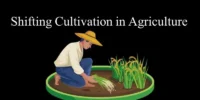How Biotechnology is Improving Agriculture for a Better Future
Published: 19 Mar 2025
.

Biotechnology in agriculture emerges as a revolutionary force, offering innovative solutions that promise to address some of the most urgent challenges we face today—from food insecurity and malnutrition to environmental degradation. Imagine a world where crops can thrive in harsh conditions, where pesticides are no longer necessary, and where food is healthier and more nutritious. Biotechnology is making this vision a reality, and its potential is only beginning to be fully realized
.So, guys, without wasting time, let’s jump into the article to How Biotechnology is Improving Agriculture for a Better Future
1. How Biotechnology Can Solve the Growing Hunger Crisis
t. Biotechnology in agriculture offers a transformative solution, making it possible to grow more food with fewer resources.

- Higher Yields: Genetically modified (GM) crops, such as Bt corn and Bt cotton, are engineered to resist pests, leading to fewer losses and higher yields.
- Drought-Resistant Crops: Advances in biotechnology have resulted in crops that can survive with less water, an essential breakthrough in drought-prone areas.
- Pest and Disease Resistance: Biotech crops can be designed to resist diseases and pests, reducing the need for chemical pesticides and ensuring that crops remain healthy.
- Increased Crop Yields: Biotechnology helps create crops that resist pests and diseases, leading to higher yields.
- Faster Crop Growth: Genetic engineering can speed up the growth cycle of certain crops, increasing food availability.
Why it matters?
By increasing crop yields and improving resilience to climate change, biotechnology helps ensure that no one goes hungry, even in the face of increasing environmental challenges.
2. Improving Nutrition Through Biotechnology
Biotechnology doesn’t just help produce more food—it helps produce better food. Many parts of the world suffer from malnutrition, where people do not have access to the nutrients they need for a healthy life.

- Golden Rice: This genetically modified rice is enriched with Vitamin A, helping to combat blindness and other health issues caused by Vitamin A deficiency, especially in developing countries.
- Iron-Rich Crops: Crops like biofortified wheat and beans are being designed to contain higher levels of iron, zinc, and other essential nutrients that can help fight malnutrition
- Enhanced nutritional content in crops: Biotechnology boosts the levels of essential nutrients in crops, improving global nutrition.
- Addressing micronutrient deficiencies globally: Biotechnology helps combat widespread nutrient deficiencies in developing countries, improving health.
.
Why it matters?
Biotechnology is bridging the gap between food production and public health, providing people in developing nations with access to essential nutrients that they might otherwise lack. This offers hope for a healthier tomorrow.
3. Protecting the Planet Through Biotechnology
In an age where the environment is more fragile than ever, sustainable agriculture is no longer optional—it’s a necessity. Biotechnology offers solutions that reduce the negative environmental impacts of farming while enhancing food production.

- Reduced Pesticide Use: Biotechnology enables the creation of crops that are resistant to pests, significantly reducing the need for harmful chemical pesticides. This means healthier ecosystems, cleaner water, and less toxic exposure to farmers.
- Conserving Water: Drought-tolerant crops help reduce water consumption, a vital development as the world faces increasing water scarcity.
- Soil Health: Biotechnology promotes practices like crop rotation and reduced tillage, both of which contribute to healthier soil and less soil erosion.
- Lower carbon footprint: Genetically engineered crops require fewer resources, reducing the environmental impact of farming.
Why it matters?
By making agriculture more resource-efficient and environmentally friendly, biotechnology ensures that future generations can continue to farm the land without compromising the planet’s health.
With climate change increasingly threatening global food production, biotechnology is helping farmers adapt to the changing climate. From drought-resistant crops to those that can thrive in salty or poor soils, biotechnology provides essential tools for climate-resilient agriculture.
- Carbon-Sequestering Crops: Some genetically engineered crops can help sequester more carbon in the soil, reducing greenhouse gas emissions and helping mitigate climate change.
- Climate-Smart Agriculture: By developing crops that require fewer chemical inputs and less water, biotechnology helps farmers reduce their environmental footprint while producing more food.
Why it matters?
As the planet warms, climate change will continue to threaten food security, but biotechnology is paving the way for resilient farming systems that can withstand the unpredictable impacts of climate change.
5. Reducing Waste and Improving Food Quality
Biotechnology is not only improving the quantity of food but also its quality. From longer shelf life to enhanced flavor, genetically engineered crops are designed to meet the ever-growing demands of consumers.

- Longer Shelf Life: Crops such as genetically modified tomatoes have been engineered to stay fresh longer, reducing food spoilage and waste.
- Better Taste: Certain genetically modified crops are designed to have enhanced flavors and nutritional benefits, providing consumers with a superior eating experience.
- Food Waste Reduction: By improving shelf life and reducing spoilage, biotechnology helps reduce the enormous amount of food that goes to waste every year, contributing to greater food security.
- Lower carbon footprint: Genetically engineered crops require fewer resources, reducing the environmental impact of farming.
Why it matters?
In a world where millions of tons of food go to waste every year, biotechnology offers a solution to make food last longer and taste better, improving overall food security and reducing the environmental toll of waste.
Conclusion:
The emotional and practical benefits of biotechnology in agriculture cannot be overstated. From fighting hunger and malnutrition to protecting our environment and reducing waste, biotechnology is helping shape a future where food is more abundant, healthier, and produced in harmony with the planet. As the challenges of feeding a growing world intensify, biotechnology offers hope and solutions that can ensure a healthier, more sustainable future for generations to come.
The time to embrace biotechnology is now. By investing in these innovations today, we are taking a vital step toward a future where agriculture works for everyone, everywhere.
FAQs about How Biotechnology is Improving
Here are some of the most frequently asked questions about How Biotechnology is Improving Agriculture for a Better Future
Biotechnology improves crop resistance to pests, diseases, and environmental stress, leading to higher productivity. Genetically modified crops can withstand extreme conditions like drought and soil salinity. This results in more abundant harvests with fewer crop losses.
Biotechnology enhances the nutritional content of crops by biofortifying them with essential vitamins and minerals. Crops like Golden Rice are enriched with Vitamin A to combat deficiencies. This innovation helps improve public health, especially in developing countries.
Biotechnology reduces the need for chemical pesticides, conserving ecosystems and wildlife. Drought-resistant crops also help conserve water, especially in arid regions. Additionally, biotech crops are designed to improve soil health and reduce soil erosion.
Biotechnology develops crops that are more resilient to climate change, pests, and diseases, ensuring stable food production. It helps optimize land use, enabling farming in previously unsuitable areas. This ultimately supports global food security and reduces hunger.
Potential risks include unintended environmental impacts, such as crossbreeding with wild plants. There’s also concern about the long-term effects on human health and biodiversity. Ethical concerns and the control of biotech patents by large corporations are additional issues to consider.

- Be Respectful
- Stay Relevant
- Stay Positive
- True Feedback
- Encourage Discussion
- Avoid Spamming
- No Fake News
- Don't Copy-Paste
- No Personal Attacks

- Be Respectful
- Stay Relevant
- Stay Positive
- True Feedback
- Encourage Discussion
- Avoid Spamming
- No Fake News
- Don't Copy-Paste
- No Personal Attacks





